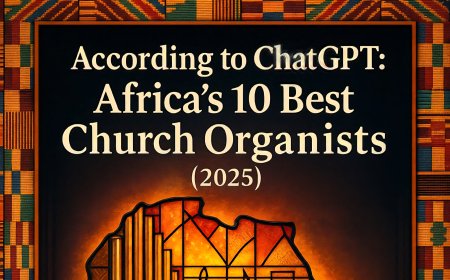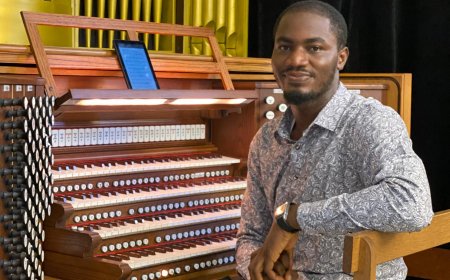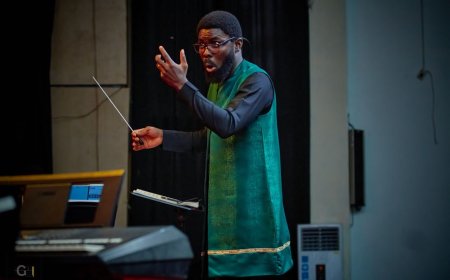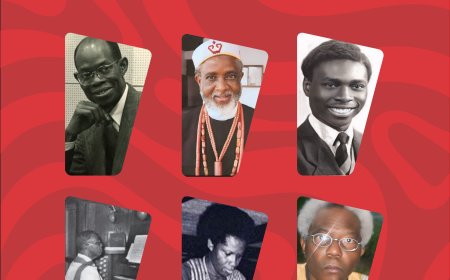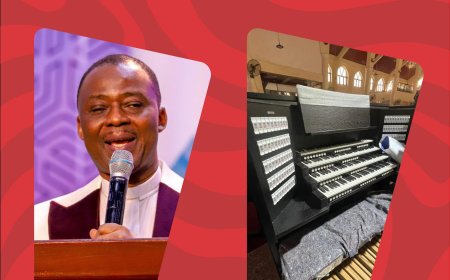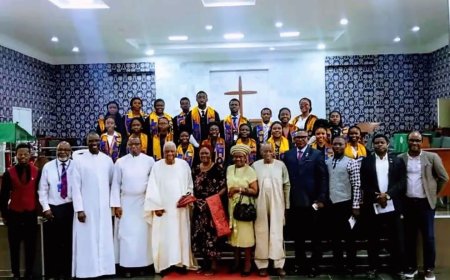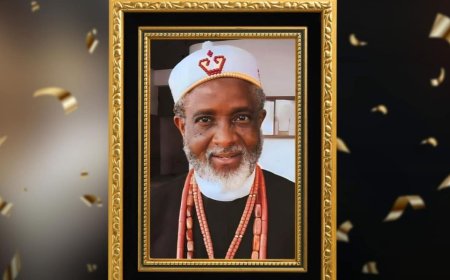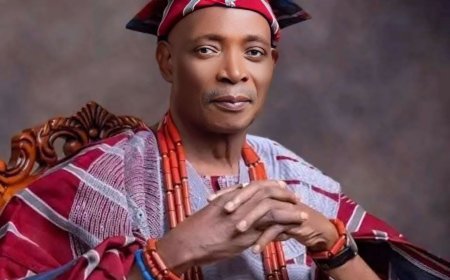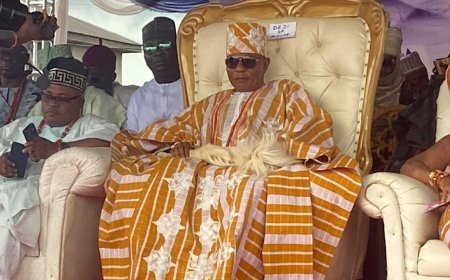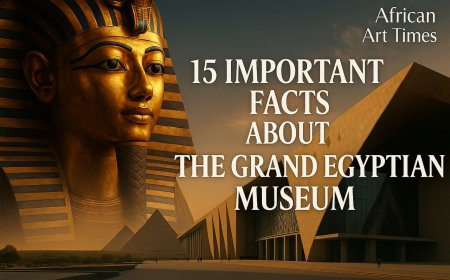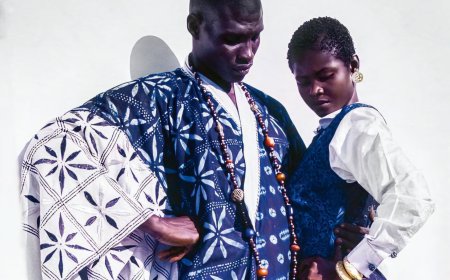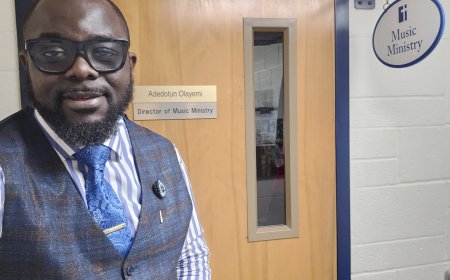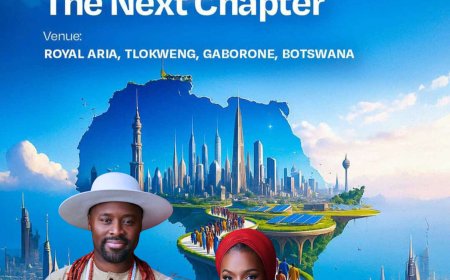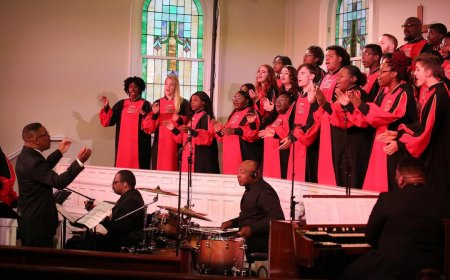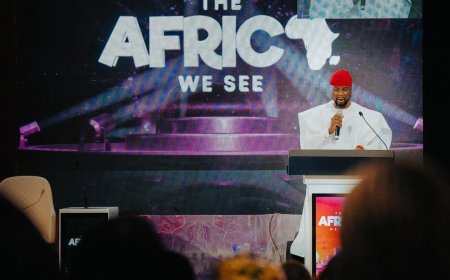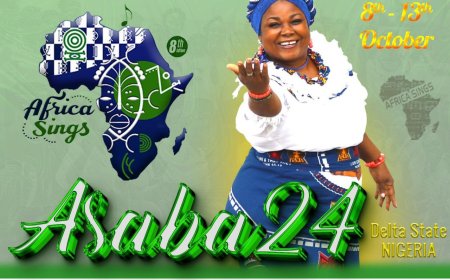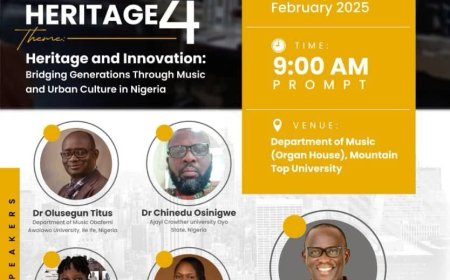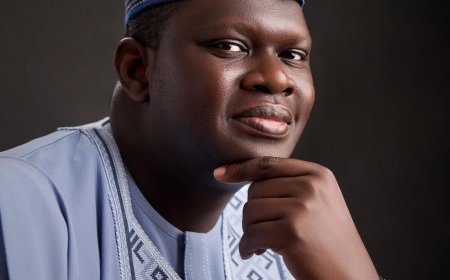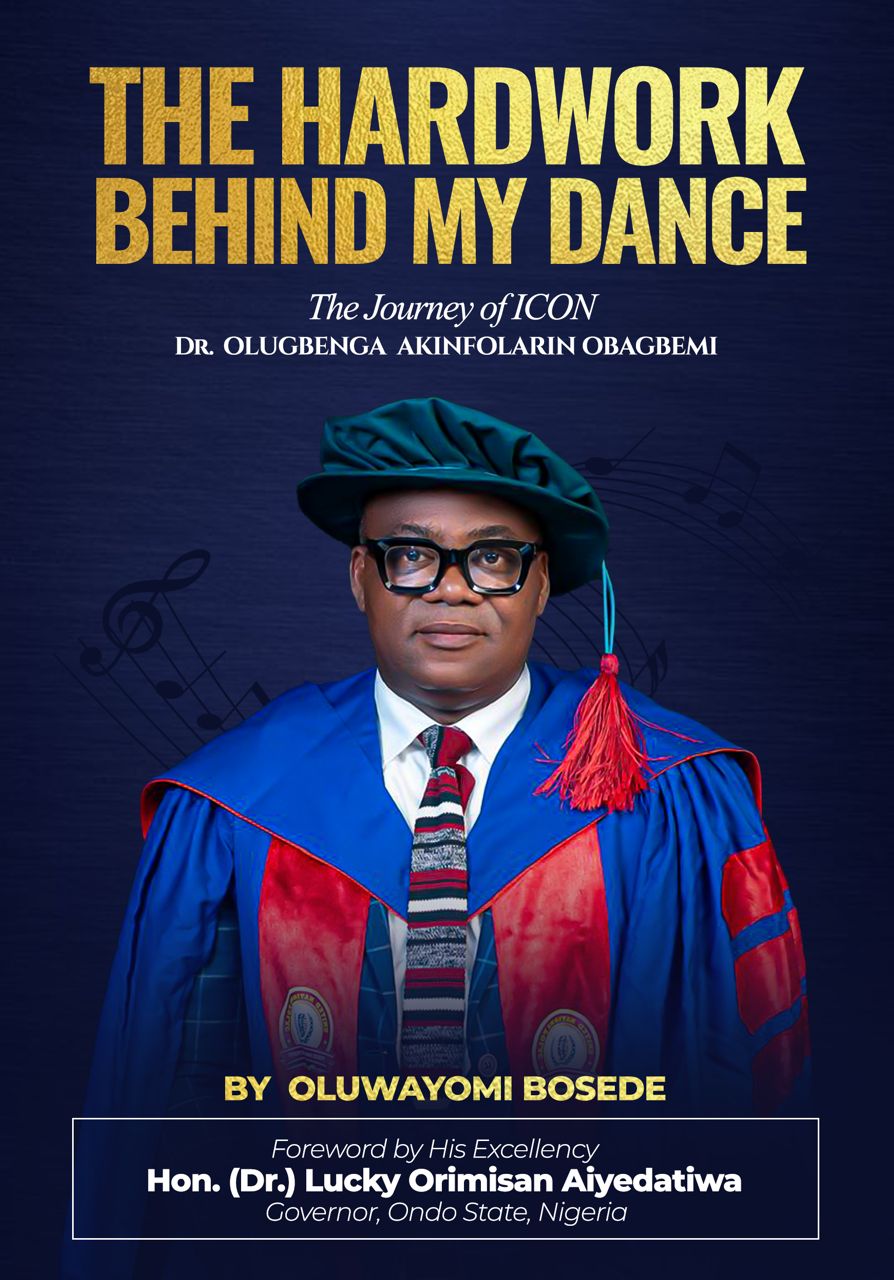ARTS & CULTURE VOL. 12, NO. 34 OCTOBER 1, 2024
0. Rhythms of Unity: Exploring Interculturalism in African Music Tourism
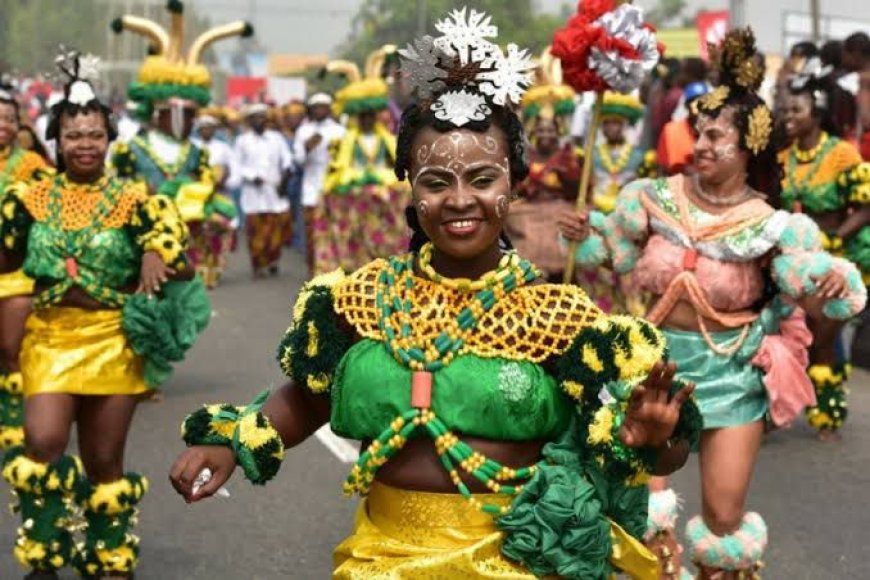
As Africa continues to embrace cultural tourism, music has emerged as a powerful tool for intercultural exchange, fostering unity and celebrating diversity. This article delves into the impact of interculturalism on African musicians, highlighting both positive and negative consequences, and emphasizing the importance of collaboration among African choral musicians.
Positive Impacts:
1. Cultural Exchange: Interculturalism facilitates the sharing of musical traditions, instruments, and techniques, enriching Africa's musical landscape.
2. Economic Benefits: Collaborations and music festivals attract tourists, generating revenue for local economies.
3. Global Recognition: African musicians gain international recognition, promoting African culture worldwide.
Negative Impacts:
1. Cultural Homogenization: Over-exposure to Western influences threatens traditional African music styles.
2. Exploitation: African musicians often receive inadequate compensation for their work.
3. Language Barriers: Communication challenges hinder collaborations between musicians from different countries.
Importance of Oneness:
African choral musicians must unite to preserve traditional music and promote cultural diversity. Organizations like the African Choral Federation and the Pan African Choir provide platforms for collaboration and skill-sharing.
Futuristic Impact:
As technology advances, digital platforms will increasingly connect African musicians, facilitating collaborations and knowledge sharing.
Diversities in Africa's Cultural Landscape:
Africa's rich cultural tapestry encompasses:
1. North Africa's Arabic-inspired melodies
2. West Africa's Afrobeat and Highlife rhythms
3. East Africa's Taarab and Bango traditions
4. Southern Africa's Mbube and Isicathamiya styles
Factors Hindering Interaction:
1. Language Barriers
Language differences can significantly hinder communication and collaboration among African musicians. With over 2,000 languages spoken across the continent, language barriers can:
- Limit understanding and interpretation of musical styles and traditions
- Make it difficult for musicians to communicate effectively
- Restrict access to international markets and audiences
2. Geographical Distances
Africa's vast geographical landscape can make it challenging for musicians to:
- Travel and perform in different countries
- Attend regional music festivals and events
- Collaborate with musicians from other countries
3. Economic Constraints
Economic challenges can hinder African musicians' ability to:
- Access quality music production equipment and facilities
- Travel and participate in international music festivals
- Invest in marketing and promotion
4. Political Instability
Political instability and conflict can:
- Limit freedom of expression and creative exchange
- Disrupt music events and festivals
- Make it difficult for musicians to travel and collaborate
Possible Solutions:
1. Language training programs
2. Digital platforms for collaboration
3. Regional music festivals
4. Government initiatives supporting cultural exchange
Case Studies:
1. The African Music Festival (TAMF) in Morocco
2. The Cape Town International Jazz Festival in South Africa
3. The MASA Festival in Côte d'Ivoire
Conclusion:
Interculturalism in African music tourism presents opportunities for cultural exchange, economic growth, and global recognition. However, challenges persist.
Recommendations:
1. Establish regional music academies
2. Develop digital platforms for collaboration
3. Support cultural exchange programs
4. Promote African music festivals globally
By embracing interculturalism and unity, African musicians can create a rich, diverse musical heritage that resonates across the continent and beyond.
References:
1. African Development Bank. (2020). Tourism and Cultural Heritage in Africa.
2. UNESCO. (2019). African Cultural Heritage and Tourism.
3. International Music Council. (2018). Music and Cultural Diversity.
About the Author:
Dr. Yomi Bosede is a renowned African music promoter and music consultant, Africanist, Art and culture enthusiast. He has written extensively on African music, Choral music, Culture, and Art.
Copyright 2024. All rights reserved.
1. Positive Impacts:
1. Cultural Exchange: Interculturalism facilitates the sharing of musical traditions, instruments, and techniques, enriching Africa's musical landscape.
2. Economic Benefits: Collaborations and music festivals attract tourists, generating revenue for local economies.
3. Global Recognition: African musicians gain international recognition, promoting African culture worldwide.
2. Negative Impacts:
1. Cultural Homogenization: Over-exposure to Western influences threatens traditional African music styles.
2. Exploitation: African musicians often receive inadequate compensation for their work.
3. Language Barriers: Communication challenges hinder collaborations between musicians from different countries.
3. Importance of Oneness:
African choral musicians must unite to preserve traditional music and promote cultural diversity. Organizations like the African Choral Federation and the Pan African Choir provide platforms for collaboration and skill-sharing.
4. Diversities in Africa's Cultural Landscape:
Africa's rich cultural tapestry encompasses:
1. North Africa's Arabic-inspired melodies
2. West Africa's Afrobeat and Highlife rhythms
3. East Africa's Taarab and Bango traditions
4. Southern Africa's Mbube and Isicathamiya styles
5. Factors Hindering Interaction:
1. Language Barriers
Language differences can significantly hinder communication and collaboration among African musicians. With over 2,000 languages spoken across the continent, language barriers can:
- Limit understanding and interpretation of musical styles and traditions
- Make it difficult for musicians to communicate effectively
- Restrict access to international markets and audiences
2. Geographical Distances
Africa's vast geographical landscape can make it challenging for musicians to:
- Travel and perform in different countries
- Attend regional music festivals and events
- Collaborate with musicians from other countries
3. Economic Constraints
Economic challenges can hinder African musicians' ability to:
- Access quality music production equipment and facilities
- Travel and participate in international music festivals
- Invest in marketing and promotion
4. Political Instability
Political instability and conflict can:
- Limit freedom of expression and creative exchange
- Disrupt music events and festivals
- Make it difficult for musicians to travel and collaborate
6. Possible Solution:
1. Language training programs
2. Digital platforms for collaboration
3. Regional music festivals
4. Government initiatives supporting cultural exchange
7. Case Studies:
1. The African Music Festival (TAMF) in Morocco
2. The Cape Town International Jazz Festival in South Africa
3. The MASA Festival in Côte d'Ivoire
8. Conclusion:
Interculturalism in African music tourism presents opportunities for cultural exchange, economic growth, and global recognition. However, challenges persist.
9. Recommendation:
1. Establish regional music academies
2. Develop digital platforms for collaboration
3. Support cultural exchange programs
4. Promote African music festivals globally
By embracing interculturalism and unity, African musicians can create a rich, diverse musical heritage that resonates across the continent and beyond.
10. References:
1. African Development Bank. (2020). Tourism and Cultural Heritage in Africa.
2. UNESCO. (2019). African Cultural Heritage and Tourism.
3. International Music Council. (2018). Music and Cultural Diversity.
11. About the Author:

Dr. Yomi Bosede is a renowned African music promoter and music consultant, Africanist, Art and culture enthusiast. He has written extensively on African music, Choral music, Culture, and Art.
Copyright 2024. All rights reserved.
What's Your Reaction?







